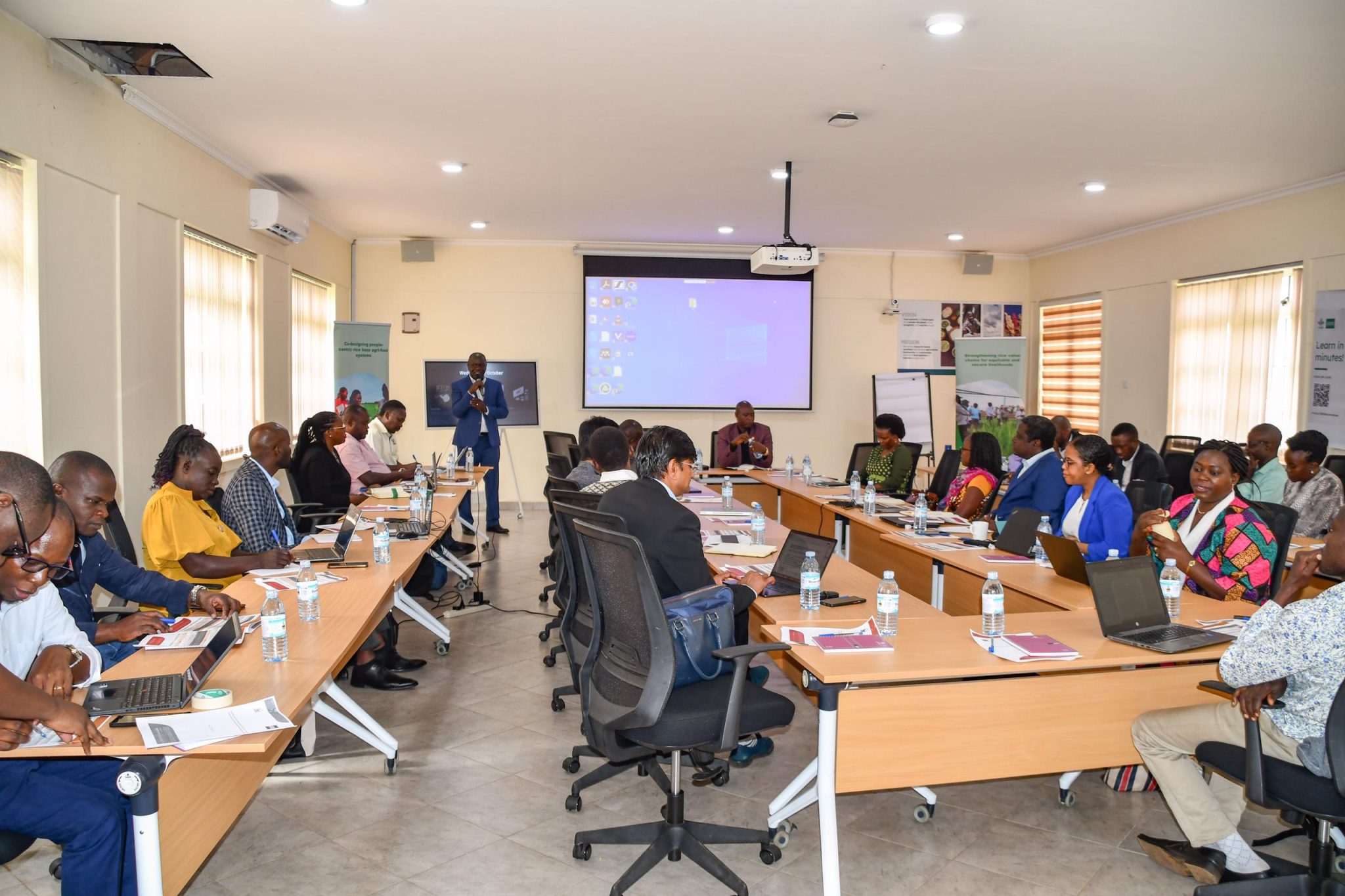WAKISO, June 10, 2025 – Key stakeholders in Uganda’s rice value chain have convened in a pivotal meeting aimed at developing a sustainable strategy to boost rice production, marketing, and sector-wide interventions.
The initiative comes in response to the growing demand for rice amidst stagnant domestic production, compounded by increasing pressure on food resources, particularly maize, due to the rising number of refugee communities hosted in Uganda.
Held at the National Agricultural Research Laboratories [NARL] in Kawanda, Wakiso district, the conference focused on conducting a comprehensive gap analysis of Uganda’s rice-based agri-food system. The objective was to identify strategic intervention and investment opportunities that can strengthen the sector’s performance and enhance resilience to various shocks.
The workshop, organised under the auspices of the International Rice Research Institute [IRRI] in partnership with the National Crops Resources Research Institute [NaCRRI], is expected to yield targeted interventions in investment, marketing, and seed multiplication.
Dr Robooni Tumuhimbise, Director of the National Agricultural Research Laboratories, emphasised the importance of promoting rice production and consumption across Uganda as a pathway to achieving food security and economic resilience.
He lauded the partnership between the National Agricultural Research Organisation [NARO] and International Rice Research Institute [IRRI], highlighting the value of collaborative research and innovation in agricultural development.
“We must leverage our strengths to promote rice as a key food crop, and ensure our research translates into practical solutions for farmers across all regions,” Dr Tumuhimbise said.
Zonal Agricultural Research and Development Institutes [ZARDIs] will play a critical role in this effort, given their mandate to translate research into practice at the community level. NARO currently operates at least nine agro-ecological zones through ZARDIs, which conduct adaptive trials to tailor agricultural innovations to local environmental conditions and farmer needs.
Dr Jummai O. Yila, IRRI’s Country Representative in Uganda, echoed the importance of these efforts in ensuring food security for vulnerable populations across sub-Saharan Africa, especially in the Horn of Africa region.
Uganda is currently host to over 1.4 million refugees from conflict-affected neighbouring countries, including Sudan, South Sudan, the Democratic Republic of Congo, and the Central African Republic. Other refugee populations in Uganda originate from countries such as Somalia, Eritrea, Ethiopia, and Djibouti, according to the United Nations High Commissioner for Refugees [UNHCR].
Many of these refugees rely heavily on food aid consisting primarily of maize, beans, and other cereals. This has increased the burden on host countries like Uganda and Kenya, intensifying the demand for alternative food crops such as rice to diversify and stabilise food supply.
This multi-stakeholder initiative demonstrates a shared commitment to strengthening Uganda’s rice sector through evidence-based planning and collaborative action. The workshop brought together representatives from both the public and private sectors, including the Ministry of Agriculture, Animal Industry and Fisheries [MAAIF], AfricaRice, UNFEE, JICA, KOPIA, RIKOLTO, and others.
https://thecooperator.news/stakeholders-engage-to-spur-rice-production-in-uganda/
Buy your copy of thecooperator magazine from one of our country-wide vending points or an e-copy on emag.thecooperator.news
